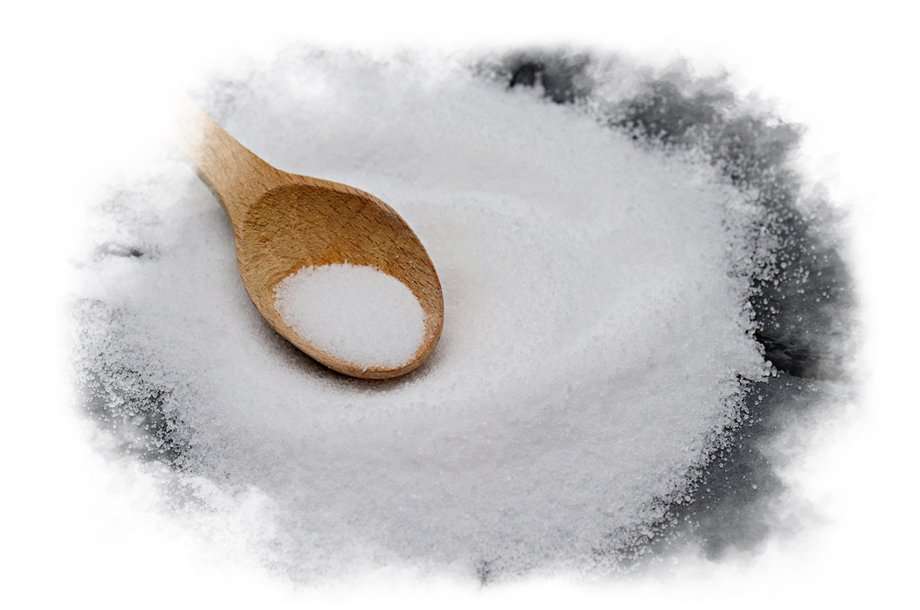Today, the number of cases of kidney failure sufferers is skyrocketing and in India, the disease is being considered and tagged as a silent epidemic that is faced by the majority of people. So the most basic question that might arise is what is its cause and how to avoid kidney diseases? The disease mainly starts to build up because of unhealthy and sedentary lifestyle preferences, and one can prevent its occurence by opting a healthy way of living. After some surveys, it has been observed that it has became an alarming point for every individual to let go of unhealthy habits and prefer a natural manner of living. Kidney failure means when one or both the kidneys become non-functional and are unable to perform their basic work i.e., removal of wastes from the body. As per Ayurveda, kidneys are roots of Madovahasrotas (fat tissue channels) and are made up of Rakta and Medadhatus (blood and fat tissues).
If the kidney disease is not controlled or treated on time, it can cause complete kidney or Renal failure and can be a reason for the emergence of other serious health complications.
The other vital functions that these pairs perform are
- Balancing the body fluids.
- Releases hormones that are associated with regulating blood pressure.
- Produce a vitamin D active form, thus promoting strong and healthy bones.
- Control the production of red blood cells.
But if the disease symptoms are treated and managed timely through kidney failure treatment in ayurveda one can reduce the chances of facing severe issues. It is seen even when the person detects the signs of kidney disease, they prefer to fix it quickly through painkillers which, according to Ayurveda will lead to aggravation of the doshas in the body (specifically Vata dosha) rather than treating the root cause of the disease.
But people often have the question that how to prevent kidney failure? Yes, Ayurveda has turned out to be the rescuer. But why only kidney failure Ayurvedic treatment should be preferred? Because Ayurveda through its natural treatment for kidney failure procedure aims to provide treatment for all stages of renal problems. The Ayurvedic treatment focuses on balancing the doshic properties of the body through a holistic approach which includes herbal medications along with dietary and lifestyle changes for better and long-term results.
Therefore, for the proper and effective functioning of the kidneys, one must opt for healthy choices in life. Ayurveda also mainly focuses on these two concerns, i.e, diet and lifestyle which are the key to sustaining a healthy and disease-free living. For this purpose, Dr. Mukesh Sharda founder Dr. Sharda Ayurveda shared some things and habits that should be avoided if you are the one showing early signs or are a sufferer of kidney diseases.
1. Not Drinking Enough Water

Drinking adequate amount of water is as important as eating healthy food. Studies show that about 50-70% of body weight is made up of water, which is an important aspect of maintaining body function. Dehydration occurs when the body loses the excess amount of water through sweating, diarrhea, vomiting, and urine. A well-hydrated body helps remove waste from the blood through urine and also opens blood vessels that aid in transporting essential nutrients to the kidneys. Mild dehydration can cause temporary impairment of functions i.e., building-up of wastes in the body and thereby clogging the kidneys with a muscle protein called myoglobin. But, if the situation persists, may even lead to complete kidney damage by majorly contributing to the formation of kidney stones and urinary tract infections. Therefore, to avoid these situations it is always suggested to keep yourself well-hydrated, which helps flush out all the toxins from the body effectively.
2. Eating Too Much Junk

Even after trying to restrict yourself, most of the time the craving for junk is hard to resist. But it needs to be understood that continuous indulgence in excessive consumption of junk food can cost a hefty amount to be paid in form of deteriorating health. These foods are high in calories, which put you at high risk of developing endocrine, heart, and digestive diseases. Various studies conducted showed that a diet that relies more on unhealthy foods may potentially trigger diabetes and can cause permanent damage to kidneys in the long run. The kidneys are highly reactive to increased sugar and cholesterol levels in the body, thereby eating fried food in excess can put greater loads on the kidneys.
3. High Salt and Sugar Diet

There is a varietal of essential functions performed by the kidneys. Therefore, these pairs require utmost care and therefore expert mainly emphasizes maintaining a well-balanced diet. The excess water in your body is removed by filtering your blood through the kidneys. The above process requires a maintained equilibrium of sodium and potassium in the body to effectively pull the water across the wall from the bloodstream and lastly collected in a channel present in the kidneys. But, a high salt diet can significantly alter the sodium balance, causing loss of function of kidneys, resulting in less water removal following high blood pressure.
Additionally, high salt intake can increase the amount of protein in the urine (disease-associated is proteinuria) thus making you more prone to developing kidney disease in the future.
Most diabetic patients who have high sugar levels in the body are more prone to developing kidney diseases. Over time, the high sugar levels in the blood can lead to blockage and narrowing of the blood vessels. Therefore, without enough supply of blood, the kidneys get damaged and the protein called albumin passes through this filtering unit and ends up in the urine.
4. Excessive consumption of minerals
Although minerals are the basic requirement of the body for its smooth functioning, but it also needs to be understood that an excess amount of anything can put a negative impact on health. The statement is true in the case of kidney diseases; there are certain forms of minerals like potassium, calcium, magnesium, and phosphorus whose excess can potentially affect kidney function. There are certain vegetables and fruits which are suggested to be limited in the diet to avoid chances of developing serious kidney disorders.
These food items are listed down below.
- Avocados: It is often suggested to be included in the diet due to their high nutritional content including fiber and antioxidants. But those suffering from kidney diseases strictly need to avoid them because they are a rich source of potassium.
- Oranges: These are high in potassium content which can potentially increase the chances of developing kidney diseases.
5. Excess consumption of saturated fat
Some amount of fat is required in the diet, but having too much saturated and trans fat can increase the risk of developing many serious health concerns including heart and kidney diseases. The experts always suggest having only 20 to 30 percent of calories from fat in a daily diet, which is important from the aspect of many bodily functions including fat-soluble vitamins.
The heart and kidney health are interconnected, the heart constantly pumps blood throughout the body and the kidneys are associated with filtering out the toxins and excess fluid from the body.
Therefore, limiting these fats from diet supports the healthy functioning of the system. Some of the food items that should be excluded from the diet are butter, meat, fish, avocados, bananas, and refined oils.
6. Alcohol intake

The kidneys are responsible for filtering out harmful toxins from the blood. One of the most harmful substances is alcohol. This can significantly alter the functioning of the kidneys and make them unable to filter blood efficiently. Additionally, alcohol makes the body dehydrated thus hampering the working of cells and organs, including the filtering unit.
Consuming too much alcohol can also affect your circulatory system and one of the concerns associated with it is high blood pressure, which is the most common cause of kidney disease. The rate of blood flow to the kidneys is usually kept at a certain level that helps the kidneys to perform their basic work. But if suffering from liver disease, there is impairment in this balancing function. So to avoid the occurrence and flare-up of ailments, quit alcohol.
Conclusion:
The above points are suggested by experts that can help in the effective prevention of serious kidney diseases. These all recommendations strictly need to be followed for a better and positive recovery. Modern practices employ procedures where patients are suggested for lifelong medications, thus giving temporary and superficial recovery from the disease symptoms. But Ayurveda, the traditional and age-old practice has the best solution. The regular intake of herbal medications along with keeping a healthy diet and lifestyle can provide the best results. Additionally, Ayurveda prevents the long dependency on medications for relief that are not provided by other medical treatments.
If you are in search of an effective Kidney failure Ayurvedic treatment, then Dr. Sharda Ayurveda is the perfect solution to opt. They are known for treating thousands of severe chronic kidney disease patients through their natural, authentic, and holistic treatment approach.
